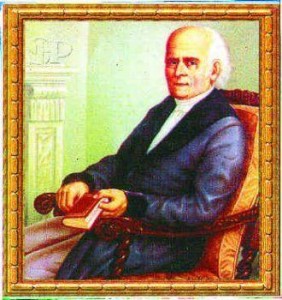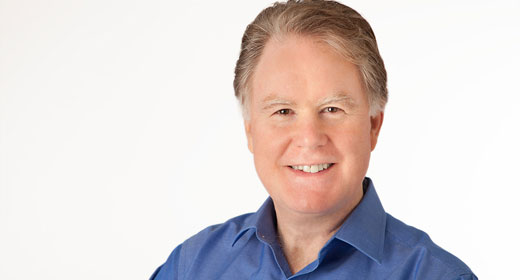Samuel Hahnemann, a German physician who was frustrated with the ‘heroic’ medicine of his time, invented homeopathy about 200 years ago.  Since then, his followers have applied what we might call ‘selective dogmatism’ to his invention: they have religiously adhered to certain aspects, been considerably more liberal in other respects and abandoned some concepts altogether.
Since then, his followers have applied what we might call ‘selective dogmatism’ to his invention: they have religiously adhered to certain aspects, been considerably more liberal in other respects and abandoned some concepts altogether.
It is therefore not unreasonable, I think, to ask what the ‘father of homeopathy’ – if he were still with us – might think of homeopathy as it is being practised today.
TYPES OF HOMEOPATHY
We tend to consider homeopathy to be one single therapy or school of thought, but this is not quite true. There a numerous forms of homeopathy, including the following:
- Auto-isopathy (treatment with remedies made from patients’ own body substances)
- Classical homeopathy (doctrine based on strict Hahnemannian principles)
- Clinical homeopathy (non-individualised treatment based mainly on guiding symptoms; e.g. arnica for bruises)
- Complex homeopathy (treatment with combination remedies)
- Homotoxicology (treatment based on Reckeweg’s concepts of detoxification)
- Isopathy (use of remedies made from the causative agent, e.g. a specific allergen for an allergy)
- Pluralistic homeopathy (use of more than one remedy at once)
The list could be extended, and we could discuss the characteristics as well as the pros and cons of each variant. But this would be rather futile and intensely boring; suffice to say that, from all we know about Hahnemann’s views and temper, he would have strongly condemned even the slightest deviation from the strict rules of his doctrine.
CURRENT TYPES OF HOMEOPATHS
So, what about the different ways in which homeopathy (whatever version we might select) is practised by Hahnemann’s disciples today? The way I see it, four different and fairly distinct types of homeopaths currently exist.
The purist homeopath
Samuel Hahnemann himself clearly was a purist. He was adamant that his detailed instructions must be followed to the letter. Amongst other things, this means that homeopathy must be seen as the only true medicine; mixing homeopathy with any other type of medicine is, according to its founder, strictly forbidden; Hahnemann was very explicit that this would weaken or even abolish its effects. Today’s purist homeopaths therefore follow these instructions religiously and employ homeopathy as the sole and only therapeutic option for any symptom or disease.
The liberal homeopath
Purist-homeopaths still do exist today, but they seem to be in the minority. Most homeopathic doctors mix homeopathic with conventional medicines, and most non-doctor homeopaths (they prefer the term ‘professional homeopaths’) accept or at least acknowledge that a mixed approach might often be necessary or preferable. In the words of Hahnemann, these homeopaths are ‘half-homeopaths’ who have ‘betrayed’ his gospel. He would most certainly disown them and point out that this type of approach is doomed to failure and cannot possibly work.
The occasional homeopath
In several countries – Germany is a good example – many doctors use homeopathy on just relatively rare occasions. We might speculate why this is so; my personal impression is that this group of clinicians do not really believe in the effectiveness of homeopathy at all. They employ it because some patients ask for it, or because they want to use a legally defensible and harmless placebo. There can be no doubt, Hahnemann would have not approved of this approach at all. Quite to the contrary, he would have been furious, called them ‘traitors’ or worse and insisted that this is nothing more than a placebo-therapy.
The DIY-homeopath
DIY-homeopaths is my term for patients and consumers who have no training in homeopathy but buy homeopathic remedies over the counter and self-administer them without consulting a trained homeopath. They might see it being recommended for a certain health problem and give it a try. If their symptoms subsequently disappear, they are likely to misinterpret this phenomenon and become convinced that homeopathy is effective. This group seems to be by far the largest of all types of homeopaths.
WOULD HAHNEMANN APPROVE?
What would Hahnemann, if we could ask him today, make of all this? I think he would be fuming with anger (from all we know, he was a rather short-tempered man and had no patience with ‘traitors’).
The DIY-homeopaths obviously break every rule in his book: without a long and complicated consultation, it would not be possible to identify the correct, individualised remedy. What follows is simple: according to Hahnemann’s teachings, all these millions of people across the globe are treating themselves with pure placebos. Ironically, this is where most scientists would agree Hahnemann’s verdict!
Hahnemann would certainly direct equal scorn towards the occasional homeopaths who do not even believe in homeopathy. To Hahnemann, belief in his doctrine was essential and the use of his remedies as mere placebos would have been insulting, utterly unacceptable and destined to therapeutic failure.
We do know from Hahnemann’s mouth what he thought of those clinicians he himself called “half-homeopaths”. In his view, they were ‘traitors’ who did not even deserve to be called true homeopaths. There can be no question about the fact that he would have judged their practice as a useless and ineffective abomination.
This leaves us with the purist-homeopath. This relatively small group of dogmatists turns out to be the only one which Hahnemann might have actually approved of. They tend to strictly adhere to (almost) every of the numerous therapeutic instruction he ever put to paper. Like Hahnemann, they believe that homeopathy is the only efficacious medicine and, like Hahnemann, they use it as a true alternative to ‘allopathy’, the derogatory term Hahnemann coined for conventional medicine.
CONCLUSION
If this analysis is correct, we are today faced with the situation where homeopathy is used by many people worldwide but, according to the teachings of homeopathy’s founder, it is currently badly misused – so much so that, according to Hahnemann’s most clearly and repeatedly expressed views, it cannot possibly result in clinical benefit. Considering that most of today’s homeopaths would insist that the words of Hahnemann as pure gospel, this situation is most bizarre and ironic indeed. It becomes even more ironic when we realise that the only group of clinicians who employ homeopathy in the ‘correct’ way is also the one which is the most serious danger to public health.









































